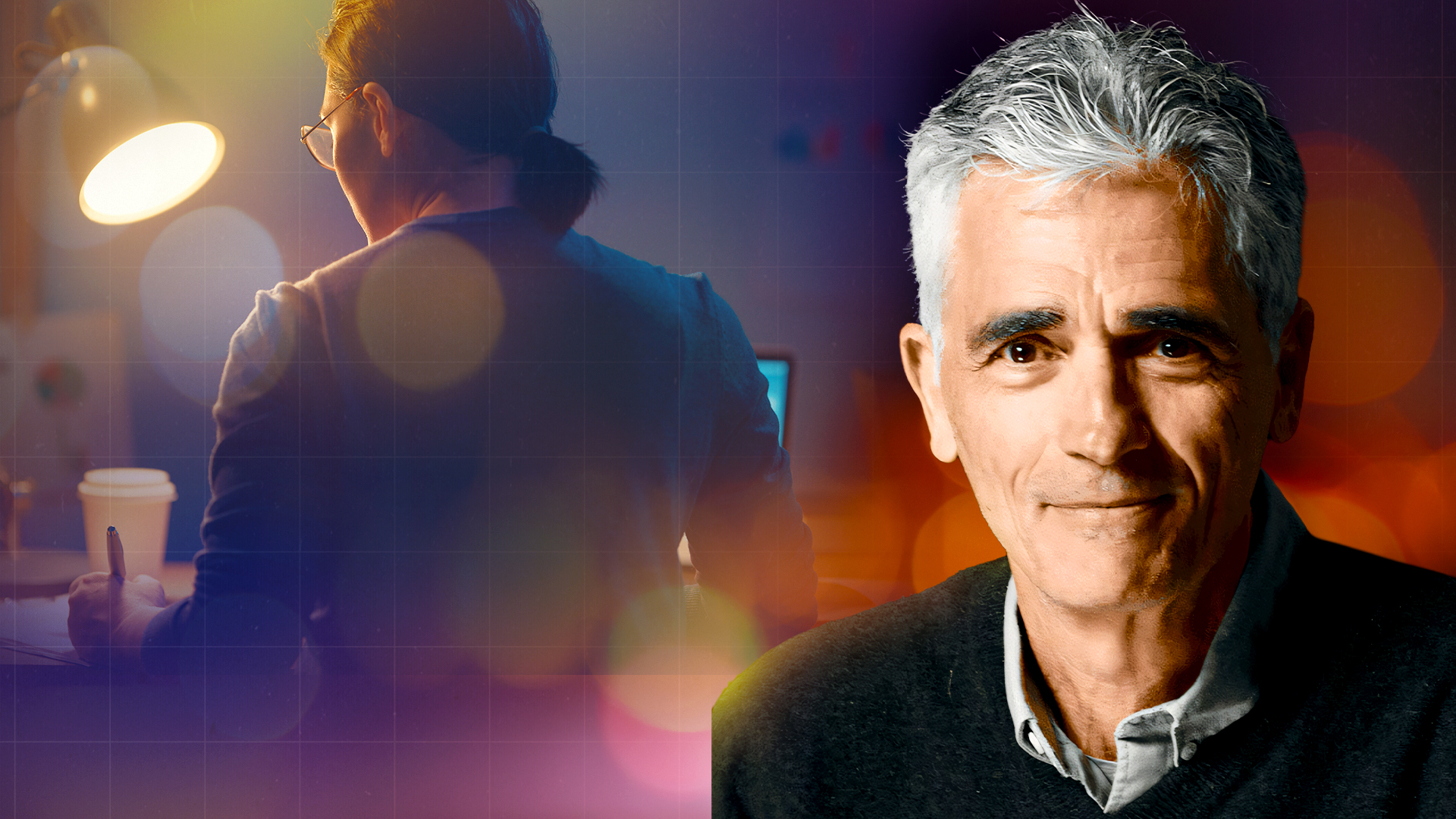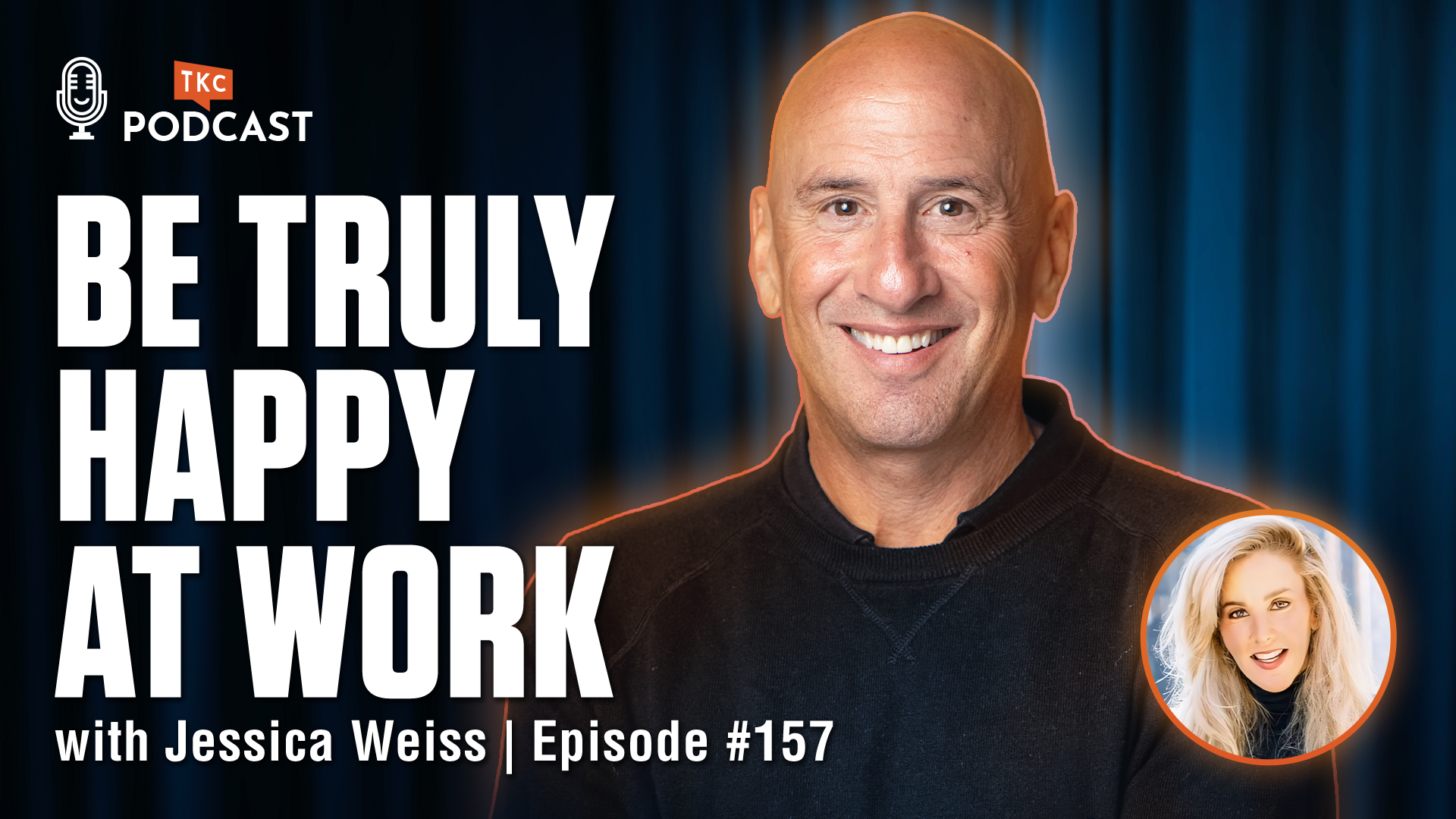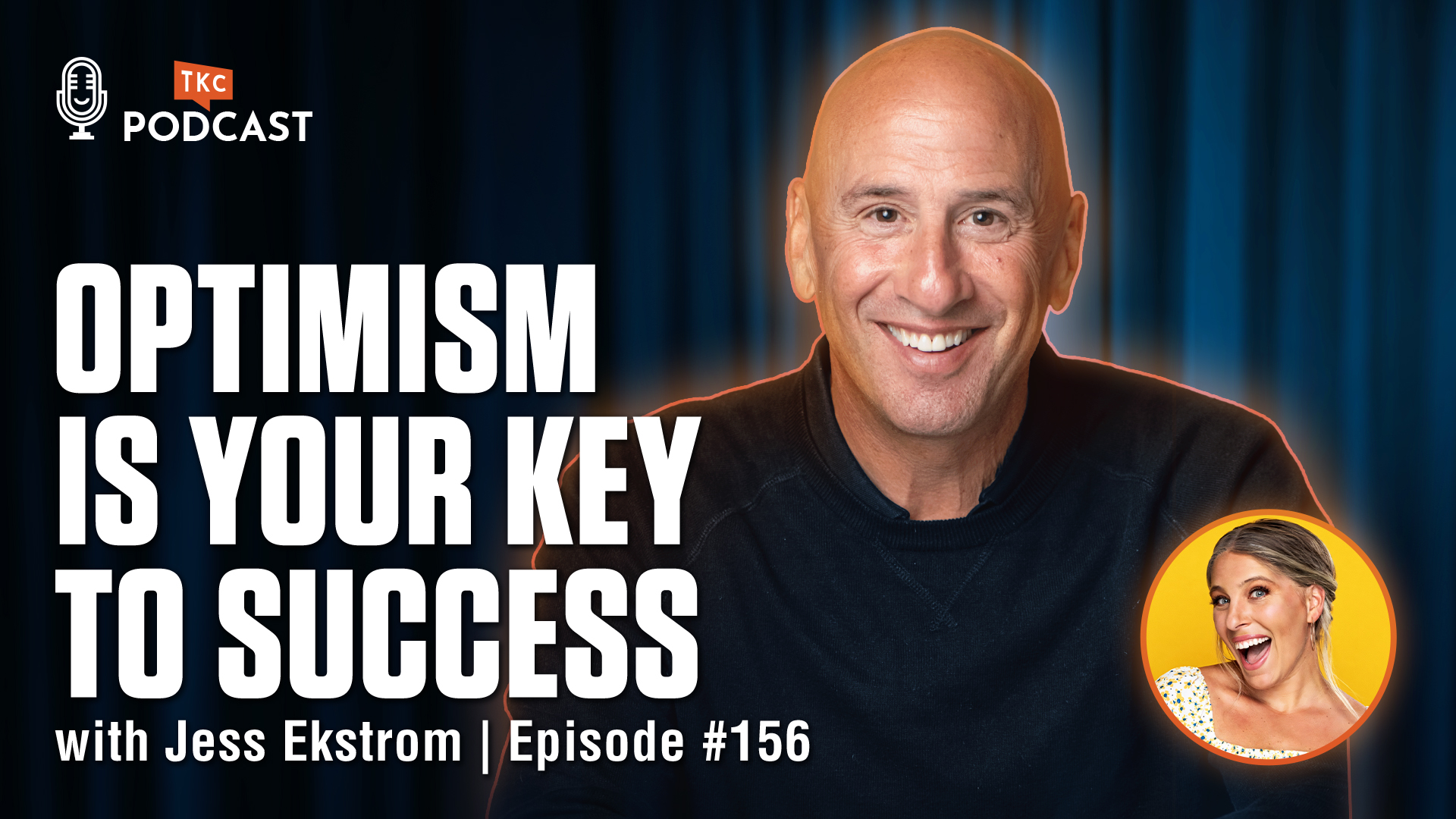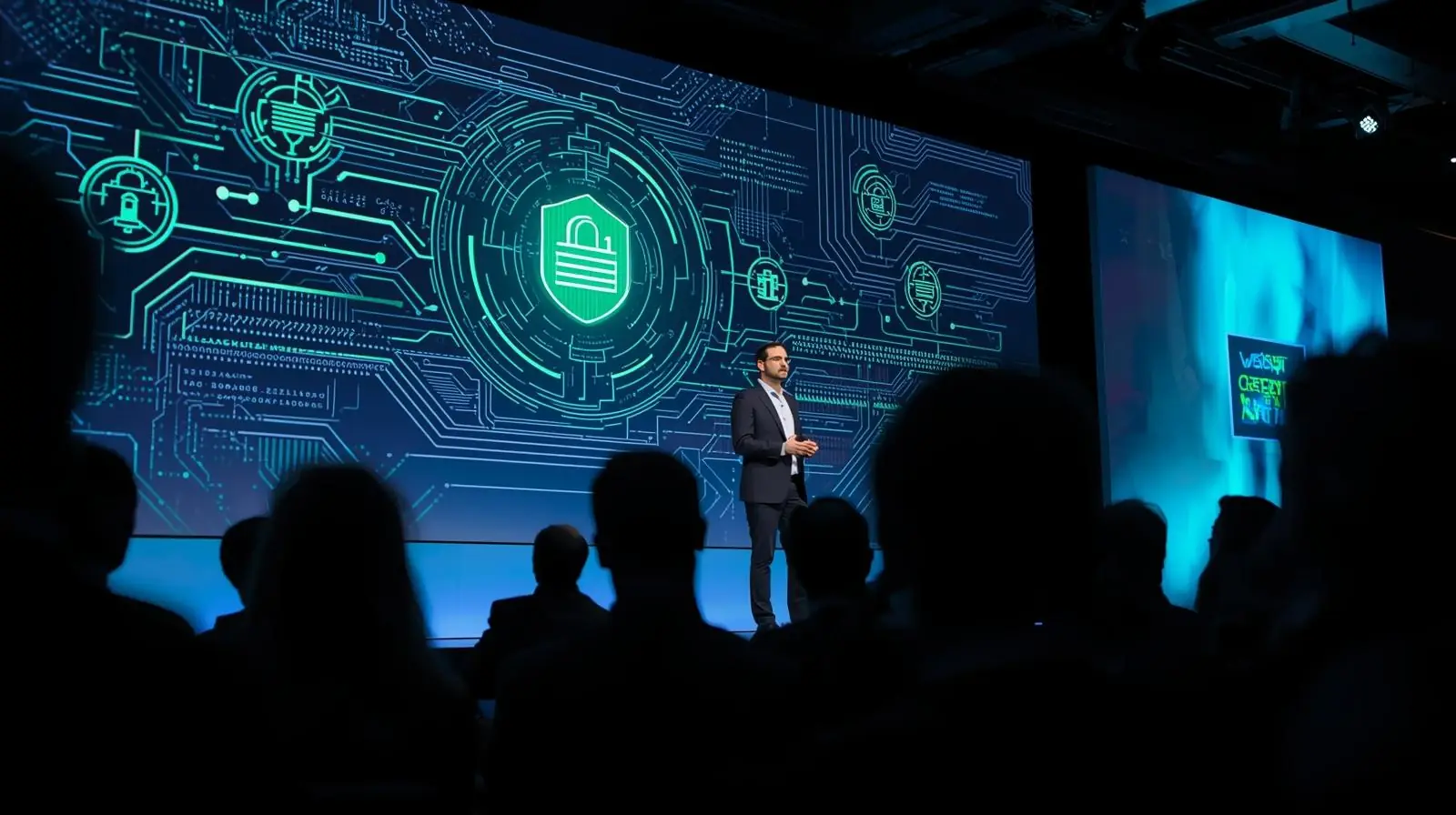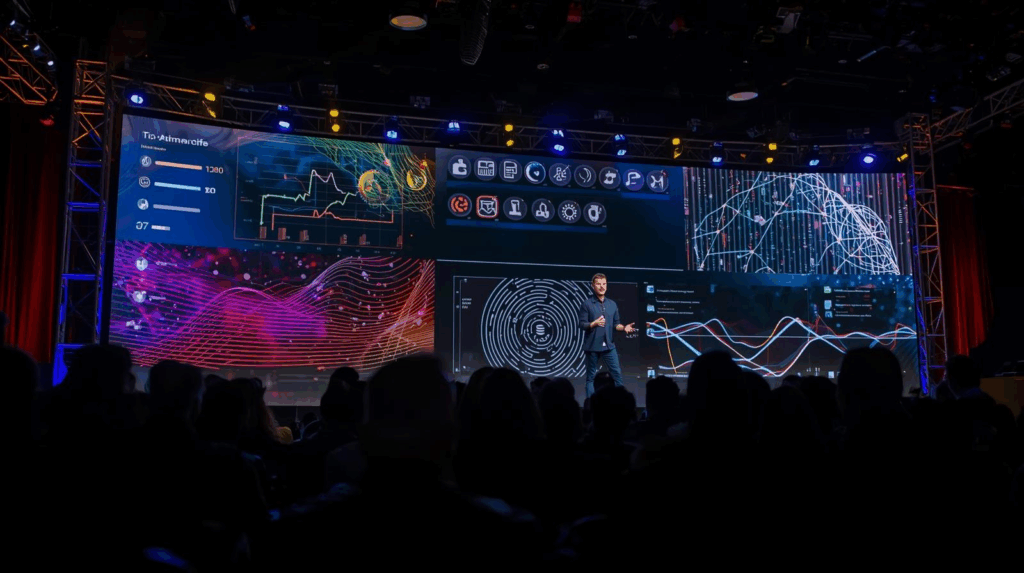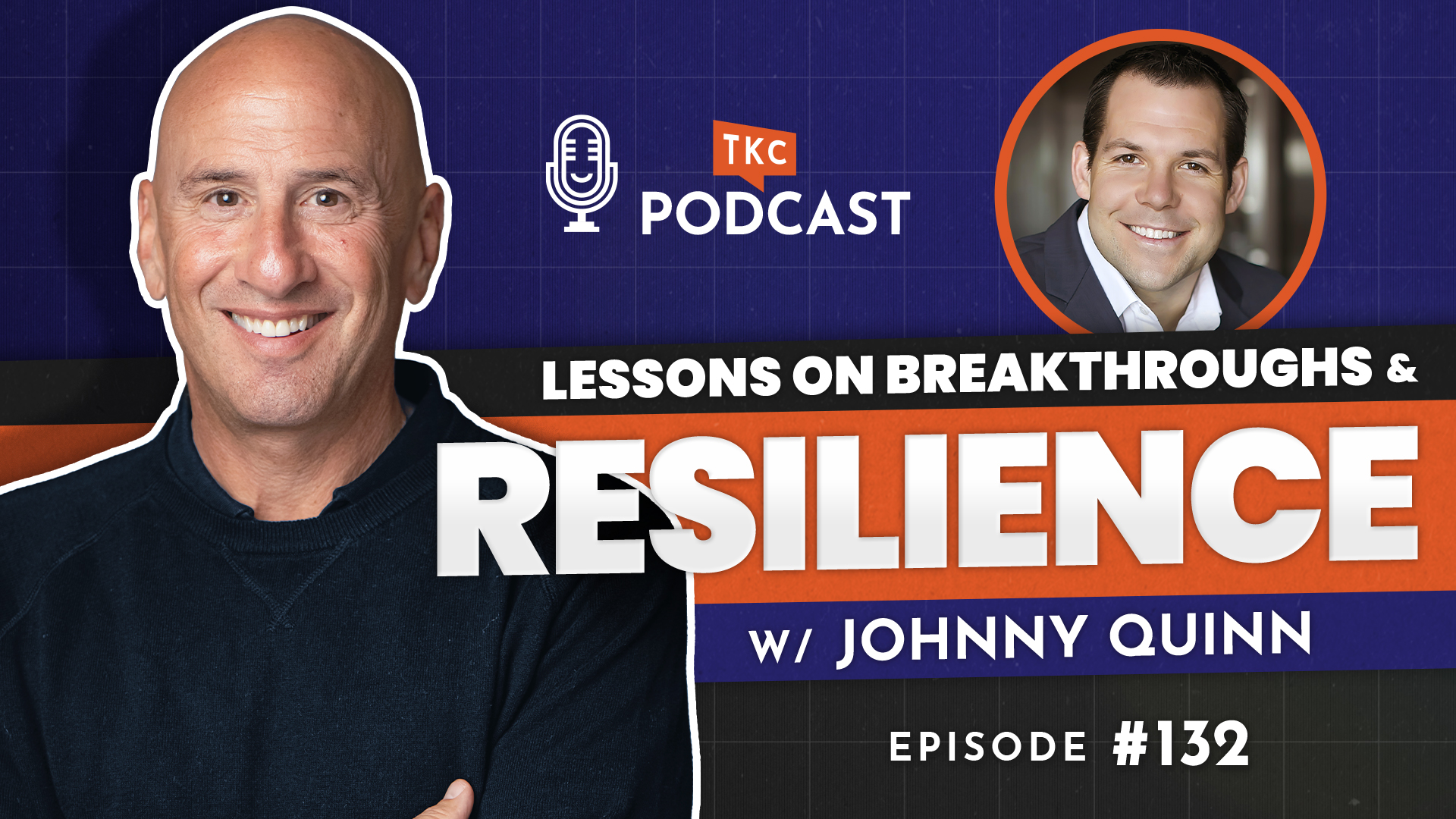
August 14, 2025From Resilience to Breakthrough Moments with Olympic Athlete Johnny Quinn
Learn resilience strategies from Olympic athlete Johnny Quinn to turn setbacks into breakthroughs and push through barriers in your career.
What separates professionals who bounce back stronger from those who stay stuck when plans crumble? The answer isn’t found in perfect circumstances or flawless execution. It’s built through resilience—the mental toughness to push forward when doors slam shut, goals shift unexpectedly, and the path ahead looks nothing like what you originally mapped out.
Every meeting professional and event planner knows this reality intimately. Venues cancel last minute. Keynote speakers get sick. Technology fails during crucial presentations. Budgets get slashed. Weather disrupts outdoor events. The question isn’t whether setbacks will happen—it’s how you’ll respond when they do.
In our latest episode of The Keynote Curators Podcast, we explored this exact challenge with Johnny Quinn, one of only three athletes to play professional football and compete in the Winter Olympics. His journey from NFL cuts to Team USA demonstrates that resilience isn’t just about surviving difficult moments—it’s about transforming them into launching pads for extraordinary achievements.
This post will examine the specific strategies Johnny uses to turn obstacles into opportunities, how he maintains momentum when everything goes wrong, and most importantly, how event professionals can apply these breakthrough principles to build resilience and create unstoppable career trajectories even when facing their toughest challenges.
Watch this week’s podcast episode here: YouTube • Spotify • Apple Podcasts • Amazon Music
When Plans Fall Apart, Champions Push Forward
The most defining moments in any career happen when the original plan disintegrates. For Johnny, this reality hit hard when his professional football dreams with the Buffalo Bills and Green Bay Packers didn’t unfold as expected. Rather than viewing these setbacks as career-ending failures, resilience keynote speaker Johnny Quinn saw them as redirections toward something bigger.
“Breakthroughs in life aren’t luck,” Johnny explains. “Nor do they only happen when everything goes right. They’re built through resilience when the plan falls apart.” This mindset shift—from seeing obstacles as roadblocks to viewing them as success detours—transforms how professionals approach every challenge they encounter.
Event planners experience this principle constantly. When a primary venue becomes unavailable six weeks before a major conference, resilient professionals don’t waste energy lamenting the lost location. They immediately shift focus to identifying alternative venues that might actually provide better experiences for attendees. When budget constraints force program changes, they discover creative solutions that often exceed original expectations while costing less.
The key to building resilience lies in understanding that setbacks aren’t personal attacks on your competence or indicators that you’re on the wrong path. They’re simply data points requiring strategic adjustments. Johnny’s transition from football to bobsledding exemplifies this approach perfectly. Instead of viewing his NFL experience as wasted time, he recognized how the elite performance training, discipline, and competitive mindset he developed would transfer directly to Olympic-level competition.
This principle applies directly to meeting professionals navigating career transitions or industry disruptions. The event management skills that served you well before virtual meetings became mainstream weren’t obsolete—they were foundational elements that could be adapted and enhanced for hybrid and digital environments. Resilience means recognizing transferable value in every experience, especially when external circumstances force unexpected changes.
The Bathroom Door Moment That Redefined Mental Toughness
Johnny’s legendary bathroom door story from the Sochi Olympics has become more than entertainment—it’s become a masterclass in problem-solving under pressure. Trapped in a bathroom with a broken door handle just hours before his Olympic competition, Johnny faced a choice that every professional encounters regularly: accept the barrier or push through it.
His decision to literally break down the door wasn’t just about escaping a bathroom. It represented a mindset that refuses to let circumstances dictate outcomes. “When a barrier won’t budge, do you push through and aim at the next goal or stay stuck where you are?” This question cuts to the heart of what separates resilient professionals from those who get derailed by obstacles.
Meeting professionals face similar moments constantly. Technology platforms crash during virtual events. Key stakeholders change requirements at the last minute. Catering companies fail to deliver promised services. Inspirational & motivational speakers cancel unexpectedly. In these moments, resilience isn’t about maintaining composure—it’s about taking decisive action to solve problems quickly and effectively.
The bathroom door story illustrates three critical components of resilience thinking. First, Johnny assessed the situation objectively without emotional reactions that would cloud judgment. Second, he focused on solutions rather than dwelling on the problem’s inconvenience. Third, he took immediate action despite uncertainty about whether his approach would work.
These same principles apply when event professionals encounter seemingly impossible challenges. When venue capacity restrictions threaten to eliminate half your expected attendance, resilience means quickly exploring hybrid formats that could actually expand your reach beyond original geographic limitations. When budget cuts force speaker cancellations, it means identifying emerging experts who might deliver even more relevant content at lower costs while building valuable long-term relationships.
The point isn’t the door—it’s the mindset that refuses to accept barriers as permanent fixtures. Every obstacle becomes an opportunity to demonstrate problem-solving capabilities and build resilience for handling future challenges.
Turning Setbacks Into Strategic Springboards
Johnny’s journey from NFL cuts to Olympic competition demonstrates how professionals who have built career resilience can transform disappointments into strategic advantages. Rather than viewing his football career as a failure, he leveraged every element of that experience to accelerate his bobsledding development in ways that traditional training paths couldn’t match.
“The best way to learn is observing the pros,” Johnny shares, describing how he studied elite bobsledders with the same intensity he once applied to analyzing NFL game footage. This approach—treating every transition as a learning laboratory rather than starting from scratch—accelerates skill development and builds confidence simultaneously.
Event professionals can apply this strategy when industry changes or career pivots require new competencies. When virtual event platforms emerged as necessities rather than options, resilient planners didn’t abandon everything they knew about audience engagement. They studied how successful digital marketers, online educators, and streaming professionals created compelling virtual experiences, then adapted those insights to meeting environments.
The key insight here involves recognizing that setbacks often provide access to opportunities that wouldn’t have been available through linear career progression. Johnny’s football background gave him physical conditioning, competitive mindset, and team collaboration skills that most bobsledders develop over many years. Similarly, event professionals with diverse industry experience bring unique perspectives that purely hospitality-focused colleagues might lack.
This principle becomes especially powerful when combined with strategic leadership development. Instead of viewing career detours as time lost, resilient professionals treat them as credential-building experiences that differentiate them from competitors following more conventional paths. Johnny’s dual-sport background makes him uniquely qualified to speak about adaptation, cross-training, and mental toughness in ways that single-sport athletes cannot match.
Meeting professionals who have navigated corporate events, association meetings, wedding planning, and nonprofit fundraisers bring versatility that purely corporate-focused planners cannot replicate. Each industry taught different skills—from budget optimization to stakeholder management to creative problem-solving under constraints—that combine into comprehensive expertise.
Conquering Imposter Syndrome Through Consistent Action
One of the most revealing aspects of Johnny’s story involves his honest discussion about imposter syndrome—the internal voice questioning whether you belong in elite environments. Even as he prepared for Olympic competition, doubts crept in about whether a former football player could compete with lifelong bobsledders who started training as children.
“Embracing hard things and overcoming imposter syndrome” requires shifting focus from comparative thinking to performance-based evidence. Rather than comparing his background to other athletes’, Johnny concentrated on measurable improvements in his training metrics, technique refinement, and team contribution. This approach transforms internal doubt into external action.
Event professionals frequently battle similar challenges, especially when transitioning to larger-scale events, working with high-profile clients, or entering new industry segments. The voice questioning your qualifications becomes louder when stakes increase, but resilience involves treating those doubts as information rather than truth.
Johnny’s strategy involves recognizing that everyone experiences imposter syndrome differently, but successful professionals don’t wait for confidence to appear before taking action. “The power of consistency” means showing up and performing regardless of internal uncertainty. Each successful project, each satisfied client, and each problem solved builds resilience that counters imposter syndrome more effectively than positive thinking alone.
This principle applies directly when meeting professionals consider pursuing larger contracts, speaking at industry conferences, or launching consulting practices. Instead of waiting until they feel completely qualified, resilient professionals start taking incremental steps while building competence through experience. They volunteer for challenging projects, seek mentorship from established professionals, and invest in skill development that transforms imposter syndrome into legitimate confidence.
The distinction becomes crucial during high-pressure situations. When managing events for Fortune 500 companies or government organizations, imposter syndrome might suggest you’re not qualified for such responsibility. But resilience means focusing on preparation, execution, and problem-solving rather than self-doubt. Johnny’s Olympic performance wasn’t diminished by his non-traditional background—it was enhanced by the unique perspective and skill set that background provided.
Building Unstoppable Momentum Through Daily Discipline
Johnny emphasizes that extraordinary achievements aren’t built through occasional heroic efforts—they’re constructed through daily disciplines that compound over time. “Getting the job done” means showing up consistently, especially when motivation wanes and external circumstances create friction.
This insight challenges common misconceptions about peak performance. Many professionals assume that Olympic athletes and elite performers possess supernatural motivation that drives them through difficult periods. In reality, resilience operates more like a muscle that strengthens through regular exercise than a talent that some people naturally possess.
For meeting professionals, this principle translates into establishing systems that maintain forward momentum regardless of external circumstances. Rather than relying on inspiration or perfect conditions to pursue professional development, resilient professionals create non-negotiable habits that continue during busy periods, slow seasons, and personal challenges.
Johnny’s approach involves identifying specific actions that contribute to long-term goals and executing them consistently rather than sporadically. In bobsledding, this meant daily training routines that continued regardless of weather conditions, equipment issues, or team dynamics. For event professionals, similar principles apply to client relationship building, industry education, skill development, and personal branding efforts.
The compounding effect becomes evident over months and years rather than days or weeks. Professionals who consistently invest time in learning new technologies, building industry relationships, and refining their craft create advantages that seem sudden to outside observers but represent accumulated efforts over extended periods.
This consistency also builds resilience for handling unexpected challenges. When event professionals maintain regular habits around problem-solving, creative thinking, and skill development, they’re better prepared to adapt quickly when circumstances change dramatically. The discipline itself becomes a source of stability during unstable periods.
Practical Initiative Steps That Create Breakthrough Results
Moving from inspiration to implementation requires specific strategies that transform resilience concepts into actionable behaviors. Johnny outlines practical steps that any professional can take to develop more initiative and create breakthrough momentum in their career trajectory.
The first step involves shifting from reactive to proactive thinking patterns. Instead of waiting for problems to appear before developing solutions, resilient professionals anticipate challenges and prepare responses in advance. This approach doesn’t mean expecting failure—it means building contingency plans that reduce stress and build resilience when unexpected situations arise.
Event professionals can apply this principle by creating detailed backup plans for every critical event component. Rather than hoping venues won’t cancel, technology won’t fail, and weather won’t interfere, they develop specific protocols for handling these situations quickly and effectively. This preparation transforms potential crises into manageable inconveniences.
The second step involves taking ownership of outcomes regardless of circumstances beyond your control. Johnny learned this principle through sports competition, where external factors like weather conditions, equipment malfunctions, and competitor performance could impact results, but dwelling on those factors never improved his own performance.
Meeting professionals face similar dynamics when working with multiple vendors, coordinating complex logistics, and managing diverse stakeholder expectations. Taking initiative means focusing energy on elements you can control while developing strategies for minimizing impact from variables you cannot influence. This approach builds confidence and reduces anxiety while improving actual outcomes.
The third step requires establishing accountability systems that maintain momentum during difficult periods. Johnny emphasizes that motivation fluctuates naturally, but systems can provide structure that continues regardless of emotional states. For event professionals, this might mean creating peer accountability groups, working with mentors, or establishing measurement systems that track progress toward professional goals.
These accountability systems become especially valuable during industry downturns, career transitions, or personal challenges that might otherwise derail professional development. When external circumstances create uncertainty, internal systems provide stability and direction.
Mastering Work-Life Balance Without Sacrificing Excellence
One of the most challenging aspects of building resilience involves maintaining excellence in professional endeavors while preserving energy and attention for personal relationships and health & well-being. Johnny’s insights about balancing success at work and home provide practical guidance for event professionals managing demanding careers alongside family responsibilities.
“Boring actions always win in the long run” represents Johnny’s philosophy about sustainable high performance. Rather than pursuing dramatic gestures or unsustainable intensity, resilient professionals build systems that can be maintained consistently over years and decades. This approach prevents burnout while creating steady progress toward ambitious goals.
For meeting professionals, this principle means developing work practices that don’t require heroic efforts during every busy season. Instead of relying on all-nighters and weekend work to meet deadlines, resilient professionals invest in systems, relationships, and skills that increase efficiency during normal working hours.
The key insight involves recognizing that dramatic work habits often indicate inefficient processes rather than dedication to excellence. When event professionals consistently work excessive hours, it usually suggests that better planning, delegation, or resource allocation could achieve similar results with less personal cost.
Johnny’s approach emphasizes establishing clear boundaries that protect time for family, personal development, and rest without compromising professional commitments. This balance requires strategic thinking about which activities produce the highest return on investment and which responsibilities can be delegated, automated, or eliminated entirely.
The long-term benefits extend beyond personal satisfaction to professional performance. Professionals who maintain balance tend to make better decisions, solve problems more creatively, and build stronger client relationships because they’re not constantly operating from exhaustion or stress. They also model sustainable success patterns that inspire teamwork and loyalty from colleagues and staff members.
Converting Keynote Energy Into Monday Morning Habits
Johnny addresses one of the most common challenges facing meeting professionals: translating inspirational content from conferences and events into sustained behavior change. Many attendees leave keynote presentations feeling motivated and equipped with new insights, but struggle to implement those lessons consistently in their daily routines.
The solution involves creating specific implementation plans that bridge the gap between inspiration and action. Rather than hoping that motivation will drive behavior change, resilient professionals establish concrete systems that make new habits easier to maintain than old patterns.
This principle applies whether you’re implementing lessons from ted speakers or developing your own resilience strategies. The key lies in identifying small, specific actions that align with larger goals rather than attempting dramatic lifestyle overhauls that prove unsustainable.
For event professionals, this might mean establishing weekly planning sessions that incorporate resilience principles into project management approaches. Instead of trying to revolutionize entire event planning processes immediately, they might start by building buffer time into project schedules, developing stronger vendor relationships, or improving communication protocols with clients.
The compounding effect of small, consistent changes often produces more significant results than dramatic short-term efforts. Johnny’s Olympic success wasn’t built through single breakthrough moments but through thousands of training sessions, each contributing incrementally to his overall performance capability.
Meeting professionals can apply similar thinking to career development, client relationship building, and skill enhancement. Rather than waiting for perfect conditions or major opportunities, they can start implementing resilience strategies immediately through small adjustments to existing routines and practices.
Why Resilience Becomes Your Competitive Advantage
In an industry where unexpected challenges are the norm rather than the exception, resilience transforms from a nice-to-have quality into an essential competitive advantage. Event professionals who can adapt quickly, solve problems creatively, and maintain composure under pressure become invaluable to clients and employers facing increasingly complex challenges.
Johnny’s perspective on olympic athlete mindset reveals how elite performers view obstacles differently than average competitors. Rather than seeing challenges as threats to success, they view them as opportunities to demonstrate capabilities that separate them from less resilient professionals.
This mindset shift becomes particularly powerful in event management, where problems are guaranteed to arise but solutions separate exceptional professionals from adequate ones. When clients experience crises during events, they remember how their event professional responded more than they remember the specific problem that occurred.
Building resilience also creates career longevity that extends beyond specific industry trends or economic cycles. Event professionals who can adapt to new technologies, pivot between different event formats, and maintain relationships during difficult periods build sustainable careers that weather industry disruptions.
The reputation for resilience attracts opportunities that aren’t available to professionals who fold under pressure. Clients seek out event professionals who have proven track records of delivering results despite challenging circumstances. Employers promote team members who remain effective during stressful periods and help colleagues navigate difficulties successfully.
Most importantly, resilience creates personal satisfaction that extends beyond professional achievements. When you know you can handle whatever challenges arise, you approach opportunities with consistency and resilience rather than anxiety and actions all over the place. This internal security transforms how you interact with clients, colleagues, and stakeholders while improving overall job satisfaction and career fulfillment.
From Setbacks to Success Stories That Inspire Others
Johnny’s journey from NFL disappointments to Olympic competition illustrates how personal resilience stories become powerful tools for inspiring others and building professional credibility. Every setback you overcome and every challenge you navigate successfully becomes part of your professional narrative that differentiates you from competitors with more linear career paths.
Event professionals who have successfully managed disasters, adapted to industry changes, and built thriving practices despite obstacles possess compelling stories that resonate with clients facing their own challenges. These experiences provide credibility that can’t be manufactured through credentials alone.
The key involves learning to articulate these experiences in ways that demonstrate growth, learning, and applicable insights rather than simply recounting difficulties. Johnny doesn’t present his story as a series of unfortunate events—he frames it as a masterclass in adaptation, persistence, and strategic thinking under pressure.
Meeting professionals can develop similar narratives by documenting their problem-solving processes, lessons learned from challenging projects, and strategies that proved effective during difficult situations. These stories become valuable content for marketing materials, job interviews, and client presentations while building confidence in your ability to handle future challenges.
The authenticity of real experience resonates more powerfully than theoretical knowledge when clients are making decisions about event professionals during high-stakes situations. They want partners who have proven they can deliver results when everything goes wrong, not just when conditions are perfect.
Building resilience like this requires embracing challenges as career development opportunities rather than avoiding them whenever possible. Johnny didn’t seek out the bathroom door crisis, but he used it as a defining moment that illustrates his approach to problem-solving under extreme pressure.
Taking Action When Others Stay Stuck
The ultimate test of resilience isn’t how you feel during difficult situations—it’s what actions you take when others become paralyzed by circumstances beyond their control. Johnny’s success stemmed from his willingness to keep moving forward when barriers appeared immovable and paths forward seemed unclear.
This principle becomes crucial for meeting professionals during industry disruptions, economic downturns, or personal setbacks that could derail career momentum. While others wait for conditions to improve or certainty to emerge, resilient professionals start adapting immediately and position themselves advantageously for recovery periods.
The competitive advantage comes from taking initiative while others hesitate. When virtual events became necessary, event professionals who immediately started learning new platforms and developing digital engagement strategies positioned themselves as solutions for clients rather than problems requiring solutions.
Similarly, when budget constraints force clients to reconsider event investments, professionals who proactively develop cost-effective alternatives and demonstrate clear return on investment calculations become partners rather than vendors facing elimination.
Johnny’s approach emphasizes that waiting for perfect conditions or complete information often means missing opportunities entirely. Resilient professionals start with incomplete information and adjust strategies as circumstances clarify rather than postponing action until certainty emerges.
This mindset transforms how you approach career development, business growth, and skill building. Instead of waiting for employers to provide training opportunities, resilient professionals invest in their own education. Instead of hoping for ideal client relationships, they start building valuable connections with available contacts. Instead of postponing difficult conversations, they address challenges proactively before problems escalate.
The compound effect of consistent forward motion creates momentum that becomes self-reinforcing over time. Each action taken despite uncertainty builds resilience, and that confidence built over time allows you to take bigger risks and pursue more ambitious goals. Each problem solved successfully increases your capacity for handling more complex challenges in the future.
Most importantly, this approach positions you as a leader rather than a follower in your professional community. Colleagues, clients, and industry contacts begin viewing you as someone who creates solutions rather than someone who waits for others to solve problems. This reputation becomes invaluable for career advancement and business development opportunities.
Ready to transform setbacks into breakthroughs and build unshakeable professional resilience? The strategies Johnny Quinn used to go from NFL cuts to Olympic competition aren’t just inspiring stories—they’re practical frameworks that any meeting professional can implement immediately to create breakthrough momentum in their career.
Whether you’re navigating industry disruptions, managing challenging client relationships, or building the mental toughness needed for sustained success, resilience isn’t a talent you’re born with—it’s a skill set you develop through consistent practice and strategic thinking. The difference between professionals who thrive during difficult periods and those who merely survive lies in their willingness to push through barriers when others stay stuck.
Ready to bring resilience strategies to your next event or conference? Johnny Quinn delivers dynamic presentations that equip your team with practical tools for conquering tomorrow’s challenges head-on.
Building a resilience-focused speaker lineup for your organization? Explore our comprehensive roster of experts who specialize in turning obstacles into opportunities.
Want personalized guidance for developing your event strategy around breakthrough thinking and mental toughness? Schedule a 15-minute discovery call to explore how the right resilience keynote speakers can transform your next event into a catalyst for sustained success.
Tags: Resilience
Discover More Insights
Get in TouchContact US
Fill out the form so we can best understand your needs.
A representative from The Keynote Curators will reach out to you.

